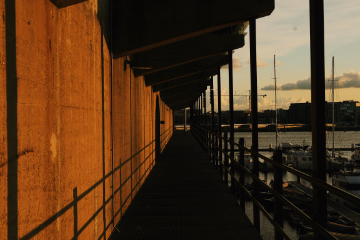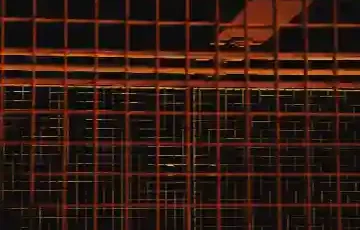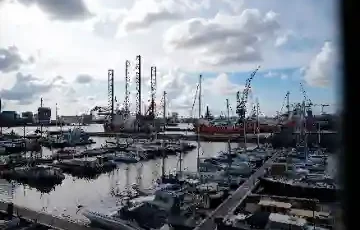
Arbitration in the Netherlands is a form of alternative dispute resolution in which parties submit their conflict to private arbitrators rather than the public courts. Dutch Arbitration procedures differ from litigation in the Dutch civil courts, as a separate body is tasked with resolving the dispute. But, how Does Arbitration work in the Netherlands? In the Netherlands, parties must agree in advance to resolve disputes through arbitration for it to have legal effect. Increasingly, companies in the Netherlands prefer arbitration over court proceedings; recent estimates indicate that approximately 38% of complex B2B disputes are now resolved via arbitration or binding advice. The primary reasons include speed, expertise, confidentiality, and international enforceability. Arbitration is especially advantageous in sectors such as construction, trade, maritime law, and international transactions.
Parties often agree to arbitration at the time of contract formation, usually by including an arbitration clause in their general terms and conditions. This ensures an alternative route is available should a dispute arise. An arbitral award has the same legal force as a court judgment in the Netherlands and, upon obtaining leave from the court (exequatur), is enforceable by a bailiff.
What Is the Legal Framework for Arbitration in the Netherlands?
The legal basis for arbitration under Dutch law is set out in Book 4 of the Dutch Code of Civil Procedure (Articles 1020–1077 Rv). Since its modernisation in 2015, arbitration procedures have become more efficient and digitally supported, allowing parties greater freedom to tailor their proceedings. Dutch law requires that arbitration agreements be in writing and relate to matters the parties are free to resolve.
Such arbitration clauses are valid in commercial contracts but not permissible in matters such as family law or bankruptcy proceedings. If a valid arbitration agreement exists, Dutch courts will declare themselves incompetent (Article 1022(1) Rv). The law also provides safeguards for impartiality of arbitrators, equality of arms, and limited grounds for setting aside awards. Only around 4% of arbitral awards are annulled annually, mostly due to procedural errors.
The Netherlands is also a party to the New York Convention (1958). As a result, Dutch arbitral awards are enforceable in over 160 countries—an important advantage in cross-border disputes. This significantly enhances legal certainty for internationally active companies.
The Arbitration Process in the Netherlands: From Initiation to Award
1. Commencement of Dutch arbitration Proceedings
Arbitration begins with a written notice from one party to the other, invoking the arbitration clause. If an arbitration institute, such as the NAI, is engaged, the procedure follows its applicable rules. The petition outlines the claim and the factual grounds. In construction matters, this is done via a Statement of Claim before the Netherlands Arbitration Board for the Building Industry. The opposing party then files a statement of defence, thereby formally commencing the procedure and setting the stage.
2. Appointment of Dutch Arbitrators
Arbitrators are appointed according to the applicable rules or contractual agreements. Typically, each party appoints one arbitrator, and together they appoint a chairperson. Impartiality and expertise are key requirements. If parties cannot agree, the interim relief judge may appoint arbitrators (Article 1027 Rv), ensuring the process is not delayed.
3. Course of the arbitration Procedure in the Netherlands
The procedure generally includes written submissions (statement of claim, defence, reply, rejoinder), followed by a hearing where parties present their case. Arbitrators may hear witnesses or appoint experts. Under Article 1039 Rv, arbitrators have discretion to determine evidentiary rules. Digitalisation plays an increasing role; at the NAI, 82% of arbitrations now proceed fully online, significantly enhancing efficiency.
Arbitrators may grant interim measures (such as orders), but cannot impose attachments; for this, parties must approach the court. This creates some interplay between arbitration and court proceedings in the Netherlands.
4. The Arbitral Award under Dutch law
After the hearing, arbitrators issue an award—either final or partial. The award is then signed and, for enforcement, deposited with the court. Appeals are only possible if expressly agreed by the parties. Annulment is only available in cases of serious procedural defects (Article 1065 Rv), making most awards final.
5. Enforcement under Dutch procedural law (Exequatur)
Enforcing an arbitral award requires court leave (exequatur), which is almost always granted unless clear grounds for annulment exist. Afterwards, a bailiff may proceed with enforcement. Thanks to the New York Convention, international enforcement of Dutch arbitral awards is relatively straightforward, providing added security in cross-border transactions.
Arbitration Institutes in the Netherlands
The Netherlands hosts several leading arbitration institutes, each with its own area of expertise. This allows parties to select the forum best suited to their dispute:
- Netherlands Arbitration Institute (NAI): Broadly applicable, strong in commercial matters. Confidential and digitally supported procedures. Handles over 1,100 new cases annually.
- Netherlands Arbitration Board for the Building Industry (RvA): Specialised in construction disputes, combining technical and legal expertise—ideal for the nature of construction conflicts.
- UNUM (formerly TAMARA): For shipping and transport disputes. Procedures often conducted in English, attracting international parties.
- FENEX Arbitration: For freight forwarding and logistics disputes under FENEX conditions, standard in the logistics sector.
Sector-Specific Applications of Arbitration in Holland
Construction Sector: Fast and Technical
Arbitration is standard practice in the Dutch construction industry. Standard terms (such as UAV) typically include an RvA arbitration clause. The technical nature of construction disputes requires specialised arbitrators. The RvA handles approximately 700 cases per year, with 62% concluded within 12 months, underscoring the model’s effectiveness.
Arbitration in the Netherlands for Trade and Corporate Law
Arbitration is popular in international trade due to its neutrality and global enforceability. At the NAI, around 46% of cases are international. Common matters include delivery conflicts, shareholder disputes, and merger-related issues. Arbitration offers the desired independence and speed in this context.
Employment Law: Niche Application
Arbitration is less common in employment law, but does appear in collective agreements (e.g., sports sector or senior management). The KNVB arbitration committee annually resolves conflicts between players and clubs, with confidentiality being paramount. Arbitration is well-suited for cases where both parties value a discreet process.
Legal Example: Arbitration in Holland as a Strategic Tool
Suppose a Dutch tech company enters a licence agreement with an American partner. Instead of litigating before a US court, the parties opt for arbitration in Amsterdam under NAI rules. This preserves neutrality, speed, and confidentiality, while ensuring the award is internationally enforceable. In a dispute over multi-million-euro royalty payments, arbitration can make the difference between a strategic exit and prolonged reputational damage or litigation costs. This approach demonstrates the value of strategic dispute resolution.
Comparison with Court Proceedings and Mediation
Arbitration differs from traditional litigation in several ways:
- Procedural flexibility allows parties to tailor the process.
- Choice of arbitrators (expertise) improves the quality of decisions.
- Confidentiality protects sensitive business information.
- International enforceability strengthens the position of exporting companies.
- No automatic right of appeal ensures finality.
Compared to mediation:
- Arbitration ends with a binding award; mediation with a settlement agreement.
- Arbitration is formal; mediation is voluntary and informal.
- Arbitration requires prior consent; mediation can be terminated at any time. Thus, arbitration is more suitable when parties seek a decisive ruling.
Pros and Cons of Dutch arbitration in a Business Context
Advantages:
- Fast, tailored procedure with clear structure.
- Expertise and confidentiality yield substantive quality and discretion.
- Internationally enforceable award due to treaty obligations.
- Finality: no appeal (unless agreed), providing certainty.
Disadvantages:
- Higher costs (arbitrators and administration) may be a barrier.
- No standard appeal option, increasing risk in case of errors.
- Not suitable for every case (e.g., consumer or family disputes), so applicability is limited.
- Enforcement requires an additional step (exequatur), which takes time.
Conclusion: Strategic Dispute Resolution
Arbitration has evolved in the Netherlands into a mature, respected alternative to the courts. Especially in sectors where speed, expertise, and discretion are crucial, arbitration offers clear advantages. It is therefore a logical alternative for companies seeking control over their legal position. The combination of internationally recognised legal force, specialist knowledge, and flexibility makes arbitration a strategically valuable instrument for companies wishing to manage legal proceedings in terms of timing, substance, and reputation. As a result, more businesses are consciously choosing this method of dispute resolution. A Dutch arbitration lawyer can advise you on your position.
Our Dutch Dispute Resolution Team in Amsterdam comprises experienced litigation attorneys in Amsterdam, specialised in delivering tailored solutions for your situation. At every stage of a civil dispute, you can rely on our knowledge and expertise. Whether it concerns a letter of demand, interim measures, summary proceedings, proceedings on the merits, appeal, or enforcement of a judgment, we are here to assist you.









